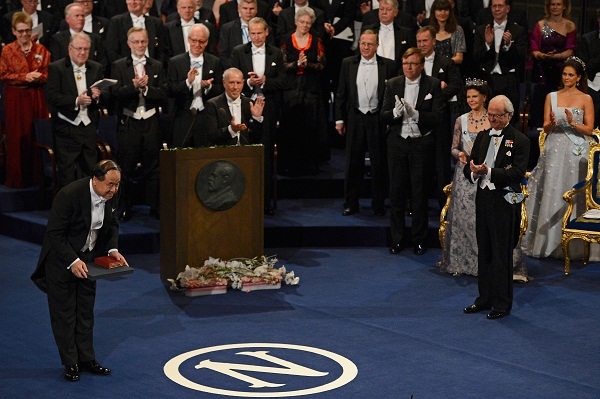The Chinese writer Mo Yan collected the Nobel Prize for Literature last night. In his acceptance lecture, he reiterated his view that a degree of censorship is ‘necessary’ in the world, and compared it to airport security.
The comparison is utterly base. Airport security is a fleeting restriction on personal liberty; a social contract entered into freely by making the decision to travel by air. Censorship is a legal mechanism imposed on entire societies by a self-appointed oligarchy that maintains itself by persecuting and prosecuting individual transgressors. Mo Yan’s logic is as flawed as his apology is malignant.
Having said that, his enthusiasm for censorship was quite restrained on this occasion: he told Granta recently that censorship benefits creativity by forcing artists to ‘inject their own imagination to isolate them from the real world or maybe they can exaggerate the situation – making sure it is bold, vivid and has the signature of our real world.

Get Britain's best politics newsletters
Register to get The Spectator's insight and opinion straight to your inbox. You can then read two free articles each week.
Already a subscriber? Log in







Comments
Join the debate for just £1 a month
Be part of the conversation with other Spectator readers by getting your first three months for £3.
UNLOCK ACCESS Just £1 a monthAlready a subscriber? Log in